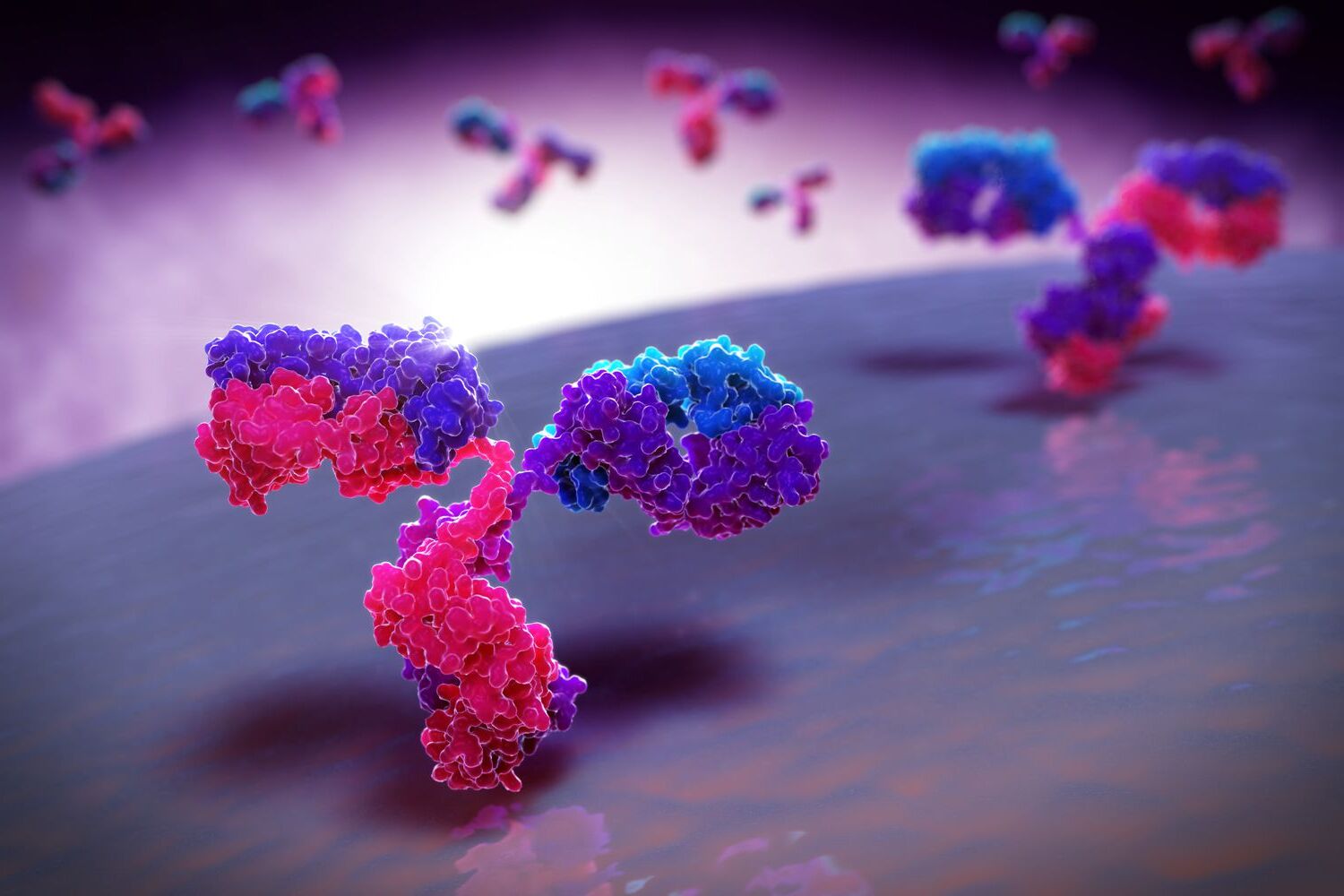
Glycoproteins are fascinating molecules that play crucial roles in our bodies. These proteins, which have sugar molecules attached to them, are involved in many biological processes. But what exactly are glycoproteins? They are proteins with carbohydrate chains covalently attached to their polypeptide side-chains. This combination of protein and sugar allows glycoproteins to perform a variety of functions, from cell signaling to immune responses. Found on the surface of cells, they help cells communicate and interact with their environment. Glycoproteins are also essential in the formation of tissues and organs. Understanding these molecules can provide insights into health and disease, making them a key area of study in biochemistry and medicine.
Key Takeaways:
- Glycoproteins are like the superheroes of our bodies, helping with everything from fighting off germs to making sure our cells work properly. They're also used in medicine to develop vaccines and treat diseases.
- Glycoproteins aren't just important inside our bodies; they're also involved in everyday things like tasting food, protecting our skin, and even helping plants and animals grow and stay healthy.
What are Glycoproteins?
Glycoproteins are proteins that have carbohydrate groups attached to the polypeptide chain. These molecules play crucial roles in various biological processes. Let's dive into some fascinating facts about glycoproteins.
- Glycoproteins are found on the surface of cells and are involved in cell-cell interactions.
- They are essential for the immune system, helping cells recognize and respond to pathogens.
- Glycoproteins are involved in the formation of the extracellular matrix, which provides structural support to tissues.
- The carbohydrate portion of glycoproteins can vary greatly, leading to a wide diversity of functions.
- Glycoproteins are crucial in the process of fertilization, aiding sperm in recognizing and binding to the egg.
- They play a role in the stability and folding of proteins, ensuring they maintain their proper structure.
- Glycoproteins are involved in the transport of molecules across cell membranes.
- They can act as enzymes, catalyzing biochemical reactions in the body.
- Glycoproteins are important in the blood clotting process, helping to form clots and stop bleeding.
- They are involved in the signaling pathways that regulate cell growth and differentiation.
Glycoproteins in Medicine
Glycoproteins have significant medical applications, from diagnostics to treatments. Here are some key facts about their role in medicine.
- Many vaccines contain glycoproteins to help stimulate an immune response.
- Glycoproteins are used in cancer therapy, targeting specific cancer cells for treatment.
- They are involved in the development of antiviral drugs, helping to block the entry of viruses into cells.
- Glycoproteins are used in diagnostic tests for various diseases, including HIV and hepatitis.
- They play a role in organ transplantation, helping to match donors and recipients.
- Glycoproteins are involved in the development of monoclonal antibodies, which are used to treat various diseases.
- They are used in the production of recombinant proteins, which are used in various therapies.
- Glycoproteins are involved in the development of biosensors, which are used to detect various biological molecules.
- They are used in the production of biopharmaceuticals, which are used to treat various diseases.
- Glycoproteins are involved in the development of gene therapy, helping to deliver genes to target cells.
Glycoproteins in Everyday Life
Glycoproteins are not just important in biology and medicine; they also play roles in everyday life. Here are some interesting facts about their everyday applications.
- Glycoproteins are found in saliva, helping to lubricate and protect the mouth.
- They are present in mucus, protecting the respiratory and digestive tracts from pathogens.
- Glycoproteins are involved in the sense of taste, helping to detect different flavors.
- They play a role in the sense of smell, helping to detect different odors.
- Glycoproteins are involved in the production of tears, helping to protect and lubricate the eyes.
- They are present in the skin, helping to protect against pathogens and environmental damage.
- Glycoproteins are involved in the production of milk, providing nutrients to infants.
- They play a role in the production of hormones, regulating various bodily functions.
- Glycoproteins are involved in the production of enzymes, aiding in digestion and metabolism.
- They are present in the blood, helping to transport oxygen and nutrients throughout the body.
Glycoproteins in Plants and Animals
Glycoproteins are not limited to humans; they are also found in plants and animals. Here are some fascinating facts about their roles in other organisms.
- In plants, glycoproteins are involved in cell wall formation, providing structural support.
- They play a role in plant defense, helping to protect against pathogens and pests.
- Glycoproteins are involved in the process of pollination, aiding in the transfer of pollen.
- They are present in plant seeds, helping to store nutrients for germination.
- In animals, glycoproteins are involved in the formation of connective tissues, providing structural support.
- They play a role in the immune system of animals, helping to recognize and respond to pathogens.
- Glycoproteins are involved in the process of wound healing, aiding in tissue repair.
- They are present in animal saliva, helping to lubricate and protect the mouth.
- Glycoproteins are involved in the production of milk in mammals, providing nutrients to offspring.
- They play a role in the sense of taste and smell in animals, helping to detect different flavors and odors.
The Future of Glycoprotein Research
Research on glycoproteins is ongoing, and new discoveries are being made all the time. Here are some exciting facts about the future of glycoprotein research.
- Scientists are exploring the use of glycoproteins in regenerative medicine, helping to repair damaged tissues.
- Research is being conducted on the role of glycoproteins in aging and age-related diseases.
- Glycoproteins are being studied for their potential in developing new vaccines and therapies.
- Scientists are investigating the use of glycoproteins in personalized medicine, tailoring treatments to individual patients.
- Research is being conducted on the role of glycoproteins in neurodegenerative diseases, such as Alzheimer's and Parkinson's.
- Glycoproteins are being studied for their potential in developing new diagnostic tests for various diseases.
- Scientists are exploring the use of glycoproteins in drug delivery, helping to target specific cells and tissues.
- Research is being conducted on the role of glycoproteins in cancer metastasis, helping to understand how cancer spreads.
- Glycoproteins are being studied for their potential in developing new antimicrobial therapies.
- Scientists are investigating the use of glycoproteins in biotechnology, helping to develop new products and processes.
The Final Word on Glycoproteins
Glycoproteins play a crucial role in many biological processes. They’re involved in cell signaling, immune responses, and even the structure of tissues. These molecules, made up of proteins and carbohydrates, are essential for proper body function. Without them, our cells couldn’t communicate effectively, and our immune system would struggle to fight off infections.
Understanding glycoproteins helps in medical research, especially in developing vaccines and treatments for diseases. Scientists study these molecules to find new ways to combat illnesses like cancer and autoimmune disorders.
In everyday life, glycoproteins are part of what makes our bodies work smoothly. From digestion to cell repair, they’re always at work behind the scenes. So, next time you think about what keeps you healthy, remember the tiny but mighty glycoproteins. They’re small but pack a powerful punch in keeping us alive and well.
Frequently Asked Questions
Was this page helpful?
Our commitment to delivering trustworthy and engaging content is at the heart of what we do. Each fact on our site is contributed by real users like you, bringing a wealth of diverse insights and information. To ensure the highest standards of accuracy and reliability, our dedicated editors meticulously review each submission. This process guarantees that the facts we share are not only fascinating but also credible. Trust in our commitment to quality and authenticity as you explore and learn with us.


